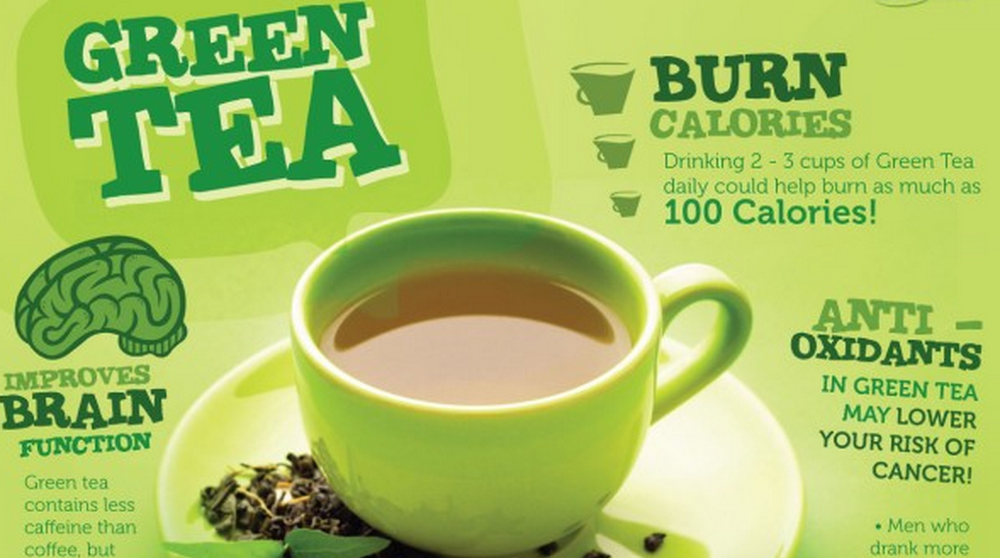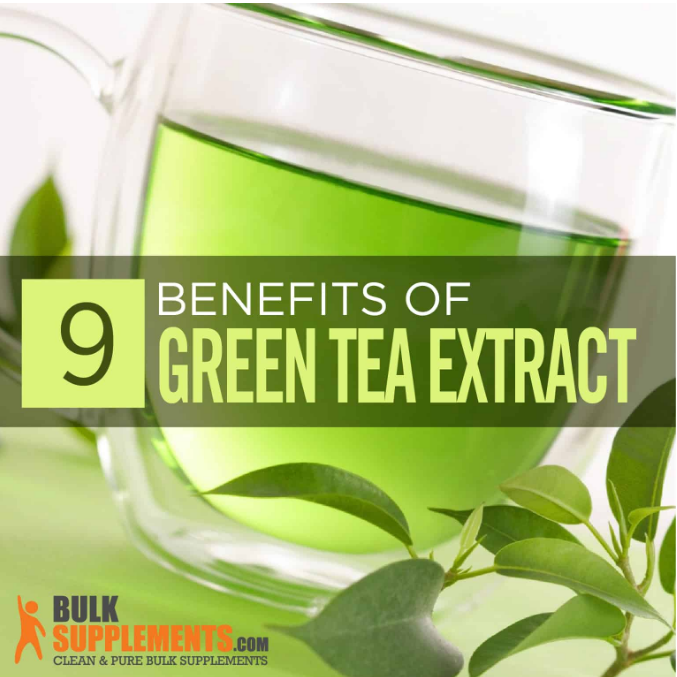Content Menu
● The Origins and Composition of Green Tea Extract
● Caffeine Content in Green Tea Extract
● Health Benefits of Green Tea Extract
>> 1. Antioxidant Powerhouse
>> 2. Weight Management Support
>> 3. Cognitive Function Enhancement
>> 4. Heart Health Support
>> 5. Blood Sugar Regulation
>> 6. Liver Protection
>> 7. Skin Health
● Comparison with Other Caffeine Sources
● Effects on the Body
● Dosage Recommendations
● Potential Side Effects and Precautions
● Conclusion
● Questions and Answers
Green tea has been consumed for thousands of years, revered for its delicate flavor and potential health benefits. In recent years, green tea extract has gained popularity as a concentrated form of this ancient beverage, offering a convenient way to harness its beneficial compounds. One of the key components of green tea extract is caffeine, a natural stimulant that plays a significant role in its effects on the body. In this comprehensive exploration, we'll delve into the world of green tea extract, focusing on its caffeine content, health benefits, comparison with other sources, effects on the body, dosage recommendations, and potential side effects.
The Origins and Composition of Green Tea Extract
Green tea extract is derived from the leaves of the Camellia sinensis plant, the same source as traditional green tea. The extraction process concentrates the beneficial compounds found in green tea, including polyphenols, catechins, and caffeine. The result is a potent supplement that can be consumed in various forms, such as capsules, powders, or liquid extracts.

Caffeine Content in Green Tea Extract
The amount of caffeine in green tea extract can vary depending on several factors, including the specific product, extraction method, and serving size. On average, a typical green tea extract supplement contains about 25-40 mg of caffeine per serving. This is comparable to the caffeine content of a cup of brewed green tea, which generally ranges from 12-75 mg per 8-ounce serving.
It's important to note that the caffeine content in green tea extract is generally lower than that found in coffee or energy drinks. For comparison, an 8-ounce cup of coffee typically contains 95-200 mg of caffeine, while energy drinks can contain anywhere from 70-240 mg per serving.
Health Benefits of Green Tea Extract
Green tea extract offers a wide array of potential health benefits, many of which are attributed to its unique combination of caffeine and other bioactive compounds. Let's explore some of the most notable advantages:
1. Antioxidant Powerhouse
Green tea extract is rich in polyphenols, particularly a type called catechins. The most abundant and potent catechin is epigallocatechin gallate (EGCG). These compounds act as powerful antioxidants, helping to neutralize harmful free radicals in the body and reduce oxidative stress. This antioxidant activity may contribute to various health benefits, including reduced risk of chronic diseases and improved overall well-being.
2. Weight Management Support
The combination of caffeine and catechins in green tea extract may help support weight management efforts. These compounds have been shown to boost metabolism and increase fat oxidation, potentially aiding in weight loss and body fat reduction when combined with a healthy diet and regular exercise.
3. Cognitive Function Enhancement
The caffeine content in green tea extract can provide a mild stimulant effect, potentially improving alertness, focus, and mental performance. Additionally, the amino acid L-theanine, found in green tea, may work synergistically with caffeine to promote a state of calm alertness, reducing the jittery effects sometimes associated with caffeine consumption.
4. Heart Health Support
Regular consumption of green tea extract may contribute to cardiovascular health. Studies have suggested that the polyphenols in green tea extract may help lower blood pressure, reduce LDL cholesterol levels, and improve overall heart function.
5. Blood Sugar Regulation
Some research indicates that green tea extract may help improve insulin sensitivity and glucose metabolism, potentially benefiting individuals with or at risk of type 2 diabetes. The catechins in green tea extract may help regulate blood sugar levels and reduce the risk of insulin resistance.
6. Liver Protection
Green tea extract has shown promise in supporting liver health. The antioxidants in green tea may help protect liver cells from damage caused by toxins and oxidative stress, potentially reducing the risk of liver diseases.
7. Skin Health
The antioxidants in green tea extract, particularly EGCG, may offer benefits for skin health. These compounds may help protect the skin from UV damage, reduce inflammation, and support overall skin appearance and elasticity.

Comparison with Other Caffeine Sources
While green tea extract contains caffeine, its effects on the body can differ from other caffeine sources due to its unique composition. Here's how it compares to some common caffeine-containing beverages and supplements:
1. Coffee: Coffee typically contains more caffeine per serving than green tea extract. However, green tea extract offers additional health benefits due to its high concentration of catechins and other polyphenols.
2. Black Tea: Green tea extract generally has a similar or slightly higher caffeine content compared to black tea. However, green tea extract contains higher levels of catechins, particularly EGCG.
3. Energy Drinks: Energy drinks often contain significantly more caffeine than green tea extract, along with added sugars and artificial ingredients. Green tea extract provides a more natural source of caffeine with additional health-promoting compounds.
4. Caffeine Pills: While caffeine pills offer a concentrated dose of caffeine, they lack the additional beneficial compounds found in green tea extract, such as catechins and L-theanine.
Effects on the Body
The caffeine and other bioactive compounds in green tea extract can have various effects on the body:
1. Increased Energy and Alertness: The caffeine in green tea extract can provide a mild energy boost and improve mental alertness without the intense jitters often associated with higher caffeine sources.
2. Metabolism Boost: Green tea extract may help increase metabolic rate, potentially aiding in weight management and fat burning.
3. Improved Exercise Performance: The combination of caffeine and catechins may enhance physical performance, endurance, and fat oxidation during exercise.
4. Antioxidant Protection: The high concentration of antioxidants in green tea extract can help protect cells from damage caused by free radicals, potentially reducing the risk of various chronic diseases.
5. Cardiovascular Support: Green tea extract may help improve blood flow, reduce inflammation, and support overall heart health.
6. Neuroprotective Effects: Some studies suggest that the compounds in green tea extract may have neuroprotective properties, potentially benefiting brain health and reducing the risk of cognitive decline.

Dosage Recommendations
The appropriate dosage of green tea extract can vary depending on the specific product and intended use. Generally, most supplements recommend a daily dose of 250-500 mg of green tea extract, which typically provides about 25-40 mg of caffeine. It's essential to follow the manufacturer's recommendations and consult with a healthcare professional before starting any new supplement regimen.
For those sensitive to caffeine or looking to limit their intake, decaffeinated green tea extract options are available. These products retain many of the beneficial compounds found in regular green tea extract while containing minimal caffeine.
Potential Side Effects and Precautions
While green tea extract is generally considered safe for most people when used as directed, there are some potential side effects and precautions to keep in mind:
1. Caffeine Sensitivity: Individuals sensitive to caffeine may experience side effects such as jitters, anxiety, or sleep disturbances. It's advisable to start with a lower dose and monitor your body's response.
2. Interactions with Medications: Green tea extract may interact with certain medications, including blood thinners, stimulants, and some antibiotics. Consult with a healthcare provider if you're taking any medications.
3. Iron Absorption: The tannins in green tea extract may interfere with iron absorption. If you have iron deficiency or are at risk, consider taking green tea extract between meals.
4. Liver Concerns: In rare cases, high doses of green tea extract have been associated with liver problems. It's crucial to adhere to recommended dosages and discontinue use if you experience any signs of liver issues.
5. Pregnancy and Breastfeeding: Pregnant or breastfeeding individuals should consult with a healthcare provider before using green tea extract supplements due to their caffeine content.
6. Stomach Upset: Some people may experience mild gastrointestinal discomfort when taking green tea extract on an empty stomach. Taking it with food can help alleviate this issue.

Conclusion
Green tea extract offers a unique blend of caffeine and beneficial compounds that can contribute to overall health and well-being. With its moderate caffeine content and high concentration of antioxidants, it provides a natural alternative to other caffeine sources while offering additional health benefits. As with any supplement, it's essential to use green tea extract responsibly, follow recommended dosages, and consult with a healthcare professional if you have any concerns or pre-existing health conditions.
By understanding the caffeine content, health benefits, and potential effects of green tea extract, you can make informed decisions about incorporating this powerful supplement into your wellness routine. Whether you're looking to boost your antioxidant intake, support weight management efforts, or simply enjoy the gentle energy lift, green tea extract may be a valuable addition to your daily regimen.
Questions and Answers
Q: How does the caffeine in green tea extract compare to coffee?
A: Green tea extract typically contains less caffeine than coffee. While a serving of green tea extract may contain 25-40 mg of caffeine, an 8-ounce cup of coffee can contain 95-200 mg. Green tea extract offers a milder caffeine boost along with additional health benefits from its polyphenols and catechins.
Q: Can green tea extract help with weight loss?
A: Green tea extract may support weight loss efforts due to its caffeine content and catechins, which can boost metabolism and increase fat oxidation. However, it's most effective when combined with a healthy diet and regular exercise. It's not a magic solution for weight loss on its own.
Q: Are there any risks associated with taking green tea extract supplements?
A: While generally safe for most people, green tea extract can cause side effects in some individuals, particularly those sensitive to caffeine. Rare cases of liver problems have been reported with high doses. It's essential to follow recommended dosages and consult with a healthcare provider, especially if you have pre-existing health conditions or are taking medications.
Q: How much green tea extract should I take daily?
A: Typical recommendations range from 250-500 mg of green tea extract per day. However, the ideal dosage can vary depending on the specific product and your individual needs. Always follow the manufacturer's instructions and consult with a healthcare professional for personalized advice.
Q: Can I take green tea extract if I'm pregnant or breastfeeding?
A: Pregnant or breastfeeding individuals should exercise caution with green tea extract due to its caffeine content. It's best to consult with a healthcare provider before using green tea extract supplements during pregnancy or while breastfeeding to ensure safety for both mother and baby.































